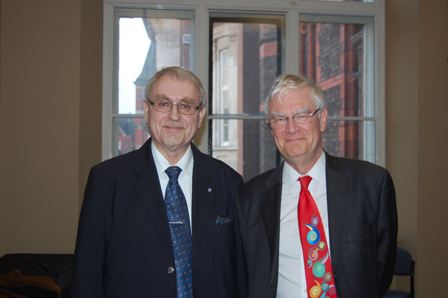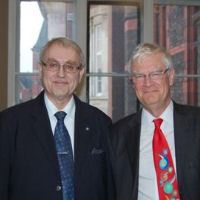A packed audience in the Victoria Gallery & Museum heard what impact the United Nations Educational, Scientific and Cultural Organisation (UNESCO) has on the scientific world.
As part of the Science & Society Lecture Series, Professor Maciej Nalecz, Director of Basic and Engineering Sciences at UNESCO, spoke specifically about the UNESCO SESAME project, which was the first Light-Synchrotron Research Centre in the Middle East, and his role in its development.
Based in Jordan, it enables world-class research in subjects ranging from biology and medical sciences through materials science, physics and chemistry to archaeology whilst crosses divides and building scientific and cultural bridges between neighbouring countries who wouldn’t normally work together including Bahrain, Cyprus, Egypt and Iran.
Liverpool is one of only 28 UNESCO heritage sites in the UK, and the many connections and collaborations where discussed, including the creation of CERN and the five beamlines based at Daresbury in partnership with the University of Liverpool and Professor Samar Hasnain.
Nobel prizewinners
Another University connection that was discussed was Professor Nelecz’s father was a friend of Nobel prize winner and former member of staff Sir Joseph Rotblat. Sir Joseph was renowned for his contributions to nuclear and medical physics and subsequently for his efforts to limit the proliferation of nuclear weapons, for which he was awarded the Nobel Peace Prize in 1995. He spent 11 years in Liverpool, carrying out research and teaching nuclear physics at the University.
Professor Nalecz said: “UNESCO is quite unique how it has influenced the scientific world and society at large and we are aiming for ‘Science for Peace’”
The next event, The necessity of breadth in a modern university education is on Tuesday 21 May by Professor Greg Petsko, Professor of Biochemistry & Chemistry, Member, US National Academy of Sciences, Brandeis University USA.

